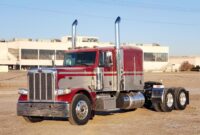The Ultimate Guide to Choosing the Best Rental Truck Company cars.truckstrend.com
Moving, hauling large items, or managing business logistics often requires a reliable set of wheels that your personal vehicle can’t provide. This is where rental truck companies step in, offering a diverse fleet of vehicles to suit every need, from compact cargo vans to expansive 26-foot moving trucks. But with several prominent players in the market, how do you determine the "best rental truck company" for your specific requirements?
The concept of the "best" is subjective, varying greatly depending on individual priorities such as budget, required truck size, one-way versus local move, availability, customer service, and additional features. This comprehensive guide aims to demystify the rental truck landscape, helping you navigate your options and confidently select the company that aligns perfectly with your moving or hauling project. We’ll delve into what makes a company stand out, compare the top contenders, offer practical advice, and address common concerns to ensure a smooth, cost-effective, and stress-free rental experience.
The Ultimate Guide to Choosing the Best Rental Truck Company
What Makes a Rental Truck Company "Best"? Criteria for Evaluation
Before diving into specific companies, it’s crucial to understand the benchmarks against which they should be measured. A truly "best" rental truck company excels in several key areas:
- Fleet Variety & Availability: Does the company offer the exact truck size you need, from cargo vans to large box trucks, and are these vehicles readily available at your desired location and time?
- Pricing & Transparency: Is the pricing structure clear, competitive, and free of hidden fees? This includes daily rates, mileage charges, fuel policies, and insurance options.
- Customer Service & Support: How easy is it to book, pick up, and return a truck? Is roadside assistance reliable? Are staff knowledgeable and helpful in addressing concerns?
- Convenience & Network: Does the company have numerous locations, especially important for one-way moves? Is their online booking system user-friendly?
- Insurance Options: Do they offer comprehensive insurance coverage or advise on third-party options to protect against damages, theft, or liability?
- Additional Services & Equipment: Do they provide moving supplies (boxes, tape), dollies, furniture pads, or auto transport trailers, simplifying your overall project?
- Reputation & Reviews: What do past customers say? Online reviews and ratings often provide valuable insights into real-world experiences regarding reliability, service, and hidden costs.
- Maintenance & Reliability: Are their trucks well-maintained, clean, and in good working order, minimizing the risk of breakdowns?

Considering these factors will allow you to objectively compare companies and identify the one that best fits your needs.
Top Contenders: A Comparative Look at Leading Rental Truck Companies
While "best" is personal, several companies consistently rank high for different reasons. Here’s an overview of the major players in the rental truck industry:
- U-Haul:
- Strengths: Unparalleled network of locations, making it ideal for one-way moves. Offers a wide range of truck sizes, cargo vans, pickup trucks, and an extensive selection of moving supplies, storage units, and towing equipment. Often competitive on local move pricing.
- Considerations: Mileage fees can add up for longer distances. Customer service experiences can be inconsistent due to the franchise model. Trucks might be older and more basic.
- Penske Truck Rental:
- Strengths: Known for newer, well-maintained trucks (often with features like automatic transmissions, air conditioning, and power steering). Offers unlimited mileage on one-way rentals, which can be a significant cost saver. Excellent roadside assistance. Often a preferred choice for long-distance moves.
- Considerations: Generally higher base prices than U-Haul or Budget. Fewer locations than U-Haul, potentially limiting availability in some areas.
- Budget Truck Rental:
- Strengths: Often the most budget-friendly option, as its name suggests, especially for local moves and smaller one-way rentals. Frequent discounts and promotions. Good range of truck sizes.
- Considerations: Truck quality can vary; some vehicles might be older. Customer service can be hit or miss. Fewer locations than U-Haul, but a decent network.
- Enterprise Truck Rental:
- Strengths: Excellent customer service, often mirroring their car rental experience. Newer, well-maintained fleet, including commercial-grade trucks, pickup trucks, and cargo vans, alongside traditional moving trucks. No mileage fees on local rentals.
- Considerations: Primarily focused on local rentals and commercial clients; less common for one-way household moves. Might be pricier than Budget or U-Haul for certain rentals.
- Ryder Truck Rental:
- Strengths: Primarily serves commercial clients with larger, specialized fleets and long-term rentals, but does offer consumer rentals. Known for robust, reliable trucks and comprehensive maintenance.
- Considerations: Less consumer-friendly than the others; fewer locations for casual renters and often more expensive for short-term needs.

Choosing the Right Truck Size: A Crucial Decision
Selecting the correct truck size is paramount. An undersized truck means multiple trips or leaving items behind, while an oversized truck means wasted money on unused space and more challenging driving.
- Cargo Vans / Small Box Trucks (10-12 ft): Ideal for studio apartments, small one-bedroom apartments, or picking up large appliances/furniture. Capacity: ~300-400 cubic feet.
- Medium Box Trucks (15-17 ft): Suitable for 1-2 bedroom apartments or small homes. Capacity: ~600-800 cubic feet.
- Large Box Trucks (20-22 ft): Perfect for 2-3 bedroom homes. Capacity: ~1,000-1,200 cubic feet.
- Extra-Large Box Trucks (24-26 ft): Designed for 3-5+ bedroom homes or large commercial moves. Capacity: ~1,400-1,700 cubic feet.
Tip: When in doubt, go slightly larger. It’s better to have a little extra space than not enough. Use online calculators provided by rental companies to estimate your needs.
Understanding Rental Truck Pricing Models
Rental truck pricing can be complex. Here’s a breakdown of common models and factors influencing cost:
- Local vs. One-Way Rentals:
- Local: You pick up and return the truck to the same location. Often involves a daily rate plus mileage fees.
- One-Way: You pick up in one city and drop off in another. Typically includes a flat rate for a set number of days and miles, with additional charges for exceeding limits. Penske often offers unlimited mileage on one-way.
- Mileage Fees: Most companies (except Penske for one-way and Enterprise for local) charge per mile driven. These can add up quickly, especially for long distances.
- Daily Rates: The base cost for renting the truck per day.
- Fuel: You are almost always responsible for fueling the truck. Many require you to return it with the same fuel level as pickup, or face significant surcharges.
- Environmental Fees/Taxes: Small, mandatory fees added to the total.
- Deposits: A refundable security deposit is usually required.
- Optional Add-ons: Insurance, dollies, furniture pads, and moving supplies all add to the cost.
Tips for Cost Savings:
- Book in Advance: Especially during peak moving seasons (summer, end of month).
- Compare Quotes: Get quotes from at least 2-3 companies.
- Look for Discounts: Check for AAA, student, military, or online booking discounts.
- Be Flexible: Mid-week or mid-month rentals are often cheaper.
- Pack Smart: Efficient packing can allow you to use a smaller, cheaper truck.
Essential Considerations Before You Rent
Don’t just sign on the dotted line. Be prepared by considering these vital points:
- Insurance: Your personal auto insurance typically does not cover rental trucks. Rental companies offer various coverages:
- Damage Waiver (CDW/LDW): Covers damage to the rental truck itself.
- Supplemental Liability Insurance (SLI): Covers damage to other vehicles or property, and injury to others.
- Personal Accident Insurance (PAI): Covers medical expenses for you and your passengers.
- Personal Property Coverage (PPC): Covers damage or loss to your belongings inside the truck.
- Action: Understand what each covers and decide if you need it. Credit cards sometimes offer limited coverage for rental cars, but rarely for large trucks.
- Driving Experience & License: A standard Class D driver’s license is sufficient for most rental trucks (up to 26 feet) in the US. No special CDL is required for personal use. However, be comfortable driving a large vehicle.
- Fueling Policies: Confirm the fuel type (gasoline or diesel) and the return fuel policy. Take a photo of the fuel gauge at pickup.
- Return Policies: Understand late return fees, cleaning requirements, and where exactly to return the truck (specific bay, key drop-off).
- Pre-Trip Inspection: Before driving off, thoroughly inspect the truck for existing damage (dents, scratches, cracked mirrors, tire condition). Take photos or videos and ensure all damages are noted on your contract to avoid being charged later. Check fluid levels and lights.
Practical Advice for a Smooth Rental Experience
- Book Early: Especially for one-way moves, holidays, or end-of-month rentals, secure your truck weeks or even months in advance.
- Read the Contract Carefully: Understand all terms, conditions, mileage limits, fuel policies, and charges before signing. Ask questions if anything is unclear.
- Load Smart: Distribute weight evenly, place heavier items at the bottom and front, and secure everything with tie-downs or ropes to prevent shifting during transit.
- Drive Safely: Rental trucks handle differently than cars. Allow for longer braking distances, wider turns, and be mindful of overhead clearances (bridges, drive-thrus). Avoid high speeds.
- Take Photos: Document the truck’s condition at pickup and drop-off, including fuel gauge and odometer readings. This can be crucial in case of disputes.
- Return on Time (and Fueled): Avoid late fees and refueling penalties by adhering to your agreed-upon return time and fuel level.
Potential Challenges and Solutions
- Breakdowns: Unfortunate but possible. All major companies offer 24/7 roadside assistance. Keep their number handy.
- Hidden Fees: Combat this by thoroughly reading your contract, asking for a detailed breakdown of costs, and confirming the final price before pickup.
- Availability Issues: If your preferred truck size or company isn’t available, be flexible with dates, consider a smaller truck and multiple trips, or check nearby locations. Booking well in advance is the best prevention.
- Damage Disputes: Your pre-trip inspection photos and documentation are your best defense against unfair charges for existing damage.
- Customer Service Problems: If you encounter issues, remain calm, clearly state your problem, and ask for a supervisor if necessary. Document names, dates, and times of interactions.
Sample Comparative Price Table: Best Rental Truck Company Estimates
Please note: These are estimated typical costs and can vary significantly based on location, time of year, demand, duration of rental, specific discounts, and current promotions. Always get a direct quote for your specific needs. Mileage fees (if applicable) are extra for local rentals.
| Company | Small Truck (10-12 ft) Local Daily Est. | Medium Truck (15-17 ft) Local Daily Est. | Large Truck (20-26 ft) Local Daily Est. | Small Truck (One-Way Est. 500 Miles) | Key Features/Notes |
|---|---|---|---|---|---|
| U-Haul | $19.95 – $29.95 + $0.69-$1.09/mile | $29.95 – $39.95 + $0.69-$1.09/mile | $39.95 – $49.95 + $0.69-$1.09/mile | $500 – $800 | Most locations, extensive supplies, good for local & DIY. Older fleet common. |
| Penske | $50 – $80 + no mileage | $80 – $120 + no mileage | $100 – $150 + no mileage | $800 – $1200 (Unlimited Miles) | Newer, well-maintained trucks. Excellent for long-distance/one-way with unlimited mileage. |
| Budget | $29.99 – $39.99 + $0.59-$0.99/mile | $39.99 – $59.99 + $0.59-$0.99/mile | $49.99 – $79.99 + $0.59-$0.99/mile | $450 – $750 | Often the cheapest base rate, frequent discounts. Truck quality can vary. |
| Enterprise | $60 – $100 (incl. mileage) | $90 – $140 (incl. mileage) | $120 – $180 (incl. mileage) | Not primary for consumer one-way | Excellent customer service, newer fleet. Great for local moves, commercial. |
Note: Prices do not include fuel, insurance, environmental fees, or additional equipment. Always obtain a direct quote for your specific needs.
Frequently Asked Questions (FAQ)
Q: Do I need a special license to drive a rental truck?
A: No, for personal use in the U.S., a standard Class D driver’s license is sufficient for most rental trucks (up to 26 feet). A commercial driver’s license (CDL) is only required for vehicles over a certain weight when used for commercial purposes.
Q: What kind of insurance do I need for a rental truck?
A: Your personal auto insurance typically does not cover rental trucks. Rental companies offer various types of insurance (damage waiver, liability, personal accident, personal property). Review these options carefully and consider what level of protection you need. Your credit card may offer limited coverage for rental cars, but usually not for large trucks.
Q: Can I tow my car with a rental truck?
A: Yes, most major rental truck companies (especially U-Haul and Penske) offer car carriers (trailer where all four wheels are off the ground) or tow dollies (front two wheels on the ground) for rent along with their trucks. Ensure your truck is powerful enough for the combined weight.
Q: How far in advance should I book a rental truck?
A: For peak seasons (summer, end of month, holidays) or one-way moves, it’s highly recommended to book 2-4 weeks in advance. For local moves during off-peak times, a few days to a week might suffice, but earlier is always safer.
Q: What happens if I return the truck late?
A: Late returns typically incur additional fees, often a full day’s rental charge, plus potential penalties. Always communicate with the rental company immediately if you anticipate being late.
Q: Are there mileage limits on rental trucks?
A: For local rentals, most companies charge a per-mile fee in addition to the daily rate. For one-way rentals, a certain number of miles are usually included in the flat rate, with additional charges for exceeding that limit. Penske is a notable exception, offering unlimited mileage on their one-way rentals.
Conclusion
Choosing the "best rental truck company" isn’t about finding a single, universally superior option, but rather identifying the one that best fits your unique circumstances. By understanding your needs, thoroughly comparing pricing models, assessing fleet availability and quality, and prioritizing customer service, you can make an informed decision.
Whether you prioritize the extensive network of U-Haul, the newer fleet and unlimited mileage of Penske, the budget-friendly rates of Budget, or the customer service excellence of Enterprise, careful research and planning are your best allies. With this comprehensive guide, you’re now equipped to confidently navigate the rental truck market, ensuring your next move or hauling project is as efficient, affordable, and stress-free as possible. Happy hauling!





